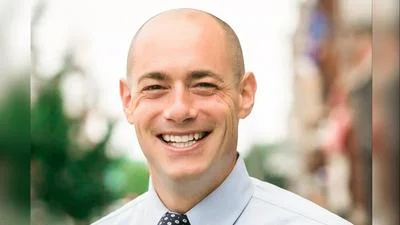Eve Bolton | Cincinnati Public Schools
Eve Bolton | Cincinnati Public Schools
A Cincinnati Public Schools Board of Education member recently addressed remote versus in-person learning, arguing that virtual education may result in great loss for a child.
Eve Bolton previously worked as a teacher for 36 years and serves as a board member for Cincinnati Public Schools (CPS), the third-largest district in the state. The board voted last week to switch back to remote learning until at least Jan. 24, citing a spike in COVID cases and a shortage of staff members.
"I had my view basically around two things," Bolton said in a Cincinnati Enquirer podcast. "One is that the children - our children - are safer at school than any other place. And more particularly, we know we have (a) learning loss. No matter how good remote is, there's learning loss for the majority of kids. And we're trying to compensate for that and accelerate our learning process to kind of make up."
Bolton was the only board member to vote against remote learning. She said that the teachers' union influenced the board's decision, according to the Cincinnati Enquirer.
"All of us really thought that remote was the last resort, but under these particular considerations, I understand why my colleagues voted the way they did," Bolton said in the podcast. "But I determined myself throughout last year and into this year that I would not ever vote again to go for remote under almost any circumstances, because it's just too critical and social-emotional - it's too devastating to families. Many of our families who had just gotten back to work, having had to quit before to take care of the kids when we were in remote. But I understand everybody's reasoning, but I just didn't do it. I want the kids in school; that's where I want the children."
A UNICEF report has found that government-mandated lockdowns and school closures negatively impacted children's mental health, leading to more fear, stress, anxiety, depression, alcohol and drug abuse, loss of learning, and poor physical activity and sleeping habits. However, the report did highlight some positives as well, such as time with family.
"The use of digital technology during the pandemic provided social connectedness, remote learning opportunities, and a way to cope with isolation and stress," UNICEF Innocenti research consultant Manasi Sharma said, according to a UNICEF report. "Engaging in positive coping strategies, prosocial behaviors and online learning opportunities have been key factors in building children’s resilience during this time, and these need to be highlighted and harnessed through greater investment in mental health promotion and prevention interventions."
Gubernatorial candidate Jim Renacci and running mate Joe Knopp have spoken out in support of Bolton's vote. Renacci said in a statement published on his website that “Ohio’s students have suffered enough, and the data shows that. Lower test scores, depression, increase in hospital admissions for mental issues are all affecting our kids across the state. Another round of quarantining our kids and isolating them from the social and educational aspect of a brick-and-mortar school day will be devastating.”
“I have seen firsthand the impact this has had on my own kids," Knopp said. "They are socially stunted. They had shown signs of withdrawing and we said enough. Ohioans are not willing to stand by and let our kids suffer. This is why Jim and I are in this fight. Keep our kids in school!”
Renacci, 63, is an accountant and entrepreneur who once owned the Columbus Destroyers Arena Football Team. He won election to U.S. Congress in 2010 as part of the Tea Party movement, and later endorsed Donald Trump over then-Ohio Gov. John Kasich in the 2016 primary for president, according to Renacci's website.
Incumbent Gov. Mike DeWine will face off against Jim Renacci in the May 3 GOP gubernatorial primary. The winner will go on to appear on ballots for the general election on Nov. 8.
Another challenge the Ohio school system faces is learning how to deal with a bus driver and substitute teacher shortage. Rules were recently changed to allow substitutes in the classroom without the requirement of a college degree, according to WLWT.




 Alerts Sign-up
Alerts Sign-up